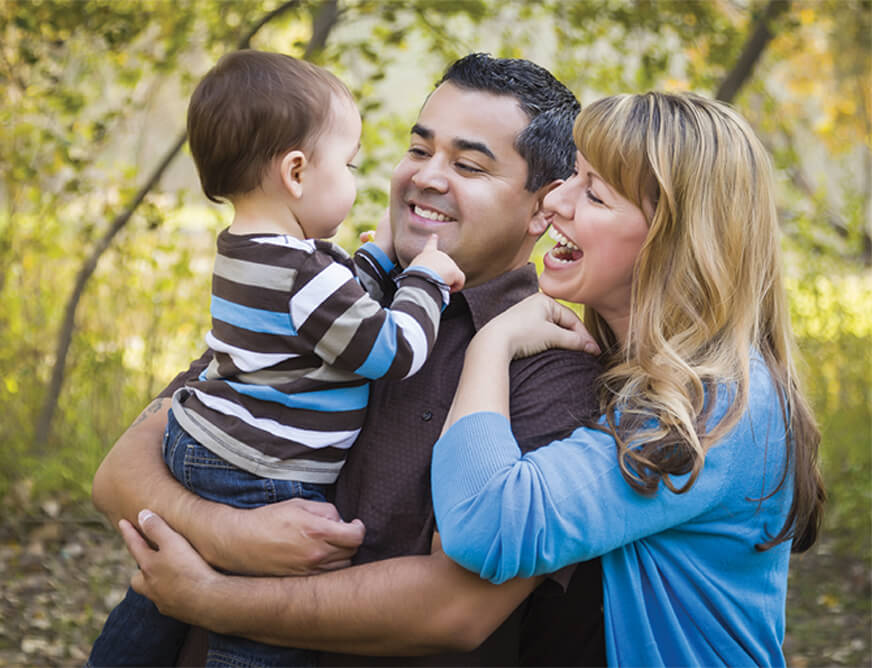In England, there are currently over 1000 children who are waiting to be adopted at any time. This number highlights how crucial it is for parents nationwide to become adopters. However, if you are already a parent, you may wonder whether you can adopt and how to do so. The good news? If you already have children, whether they are biological, adopted, or step-children, you are still eligible to welcome an adopted child into your home!
Understanding Your Motivation
People choose to adopt for many reasons, and your motivation will be personal. However, some of the common motivations include:
- Wanting to provide a family for a child in need
- Adopting due to fertility issues
- Medical issues that make future pregnancies dangerous
- Ready to expand the family beyond biological
- Want to give an older child a home rather than a baby since older children often wait longer to be adopted
- They feel adoption is their “calling,” either due to faith or spirituality
- The parent was adopted and is passionate about giving the same experience to a child in need
While there are common reasons to adopt, just wanting to adopt is a great reason!

Talking to Your Children and Family
Bringing up the subject of adopting a child to your family can feel challenging. You are unsure how they will react, especially if your children are at an impressionable age. However, it is vital you take the time to sit together and talk through all the potential benefits and obstacles you will face as a family. How you bring up the subject will depend on your relationship with your children. If you are a close family who shares thoughts and feelings openly and often, you will naturally find the conversation easier than a more reserved family.
Your children may struggle with feelings and thoughts regarding how your newly adopted child will take up more of your time and attention. Feelings of jealousy and abandonment can arise and may be expressed via behaviour such as aggression directed at the newly adopted child. However, being aware of this from the start of the process, you can work together to find a solution.
The two leading emotions your children may feel include:
- Jealousy: Jealousy can be a common emotion in children of all ages, even without the decision to welcome an adopted child into the home. You can deal with this as a parent by ensuring your child receives attention one-on-one without a sibling and always reassuring your child of your love and affection. Jealousy ultimately occurs from insecurity and fear, so reminding your child that you love them no matter how big the family grows will help alleviate any anxiety. However, you should also discuss the possibility of your child needing to share attention and that they will not always be the centre. This is incredibly difficult for both parent and child, but by openly discussing this change, your child will be more prepared.
- Aggressive behaviour: Aggressive behaviour is unpleasant to deal with and can be a significant obstacle to overcome when you are adopting or recently adopted a child. This can be magnified if the child you are adopting is of a similar age, such as a child in the age range of 6-10. (When adopting a child, you must ensure a two-year age gap.) Managing this behaviour can be helped by teaching your children about their emotions and their feelings. When a child knows how to release emotions healthily, outbursts and aggression can lessen over time. Teach your child to consider the consequences of their behaviour in order to combat it.
Your children should know that the adoption agency will wish to speak with them to gauge their feelings and discuss any concerns. Their needs and feelings will be considered as much as the adopting parents. Adoption agencies will talk to the children one-on-one so they can truly get to know them and their personalities. It will also help the agency determine how your children will react to a new brother or sister joining the household.

The Adoption Process
The process of adoption with a dedicated agency like ours can be straightforward.
First, you need to send an enquiry, which you can do so via an online contact form on our website. Or, you can send an email and call us.
After your initial enquiry, and after we have spoken to you about your decision, you can request a Register of Interest form (ROI). This form will then be reviewed, and you will be contacted to let you know if your application has been accepted.
Remember: You can only register with one adoption agency at a time, so ensure you research carefully who you wish to move forward with in your adoption journey.
Next, you will move on to the assessment process. This process is a critical step and will take several months to complete.
- Stage one: Gaining information on you, your family, your life, and your reasons to adopt. There will be statutory checks and references, along with medical assessments by your GP and a DBS check. If they are significant (such as an ex-wife or ex-husband), ex-partners will be contacted to provide a reference.
- Stage two: This stage will also take several months, approximately four months. This stage is crucial as it is one where you meet with your dedicated social worker up to seven times. Your social worker will explore your life experiences, family background, relationships, and current circumstances. You will also be required to attend a training course, which will aid you and your family learn more about the process and how to support each other.
- Stage three: After your social worker has formed a report called the Prospective Adopters Report (PAR), they will present it to the adoption panel. The adoption panel makes the final decision on whether to approve your application. You will attend the panel, as well as your social worker, and you will be able to discuss your PAR and answer any questions the panel may have. Once you’re approved, it’s time to move on to Family Finding.
Adopting a child is a significant decision to make as a family. One you should not enter into lightly, and one that needs to take every member of your family’s needs, thoughts, and feelings into account. If you’re ready to take this next step in growing your family, you can enquire with our team today.

